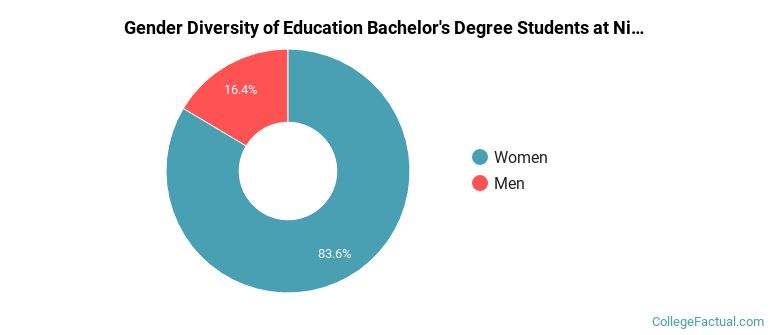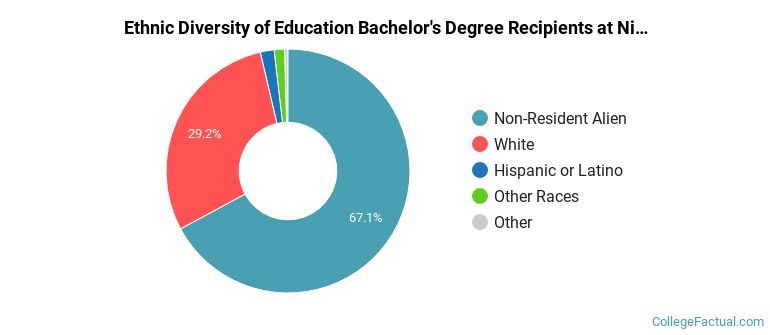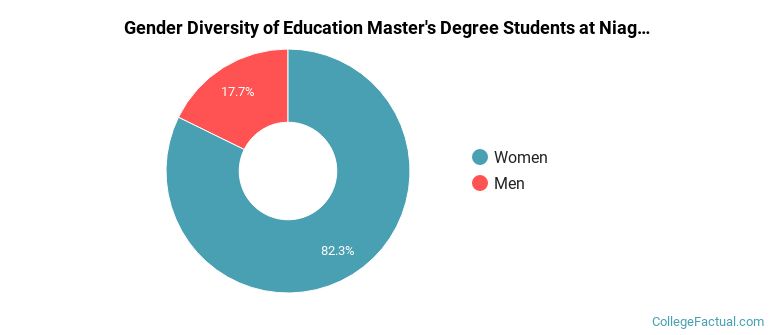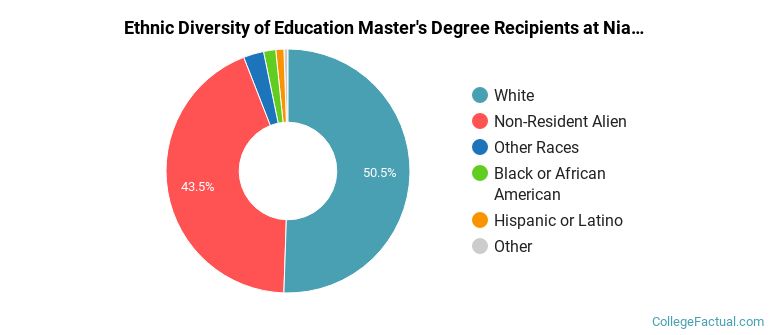 by our College Data Analytics Team
by our College Data Analytics TeamJump to any of the following sections:
The bachelor's program at Niagara was ranked #168 on College Factual's Best Schools for education list. It is also ranked #22 in New York.
| Ranking Type | Rank |
|---|---|
| Best Education Bachelor’s Degree Schools | 133 |
| Best Education Schools | 168 |
| Best Education Master’s Degree Schools | 189 |
| Best Education Graduate Degree Schools | 221 |
During the 2021-2022 academic year, Niagara University handed out 219 bachelor's degrees in education. This is a decrease of 44% over the previous year when 390 degrees were handed out.
In 2022, 196 students received their master’s degree in education from Niagara. This makes it the #209 most popular school for education master’s degree candidates in the country.
During the 2022-2023 academic year, part-time undergraduate students at Niagara paid an average of $1,200 per credit hour. No discount was available for in-state students. The following table shows the average full-time tuition and fees for undergraduates.
| In State | Out of State | |
|---|---|---|
| Tuition | $36,100 | $36,100 |
| Fees | $2,035 | $2,035 |
| Books and Supplies | $420 | $420 |
| On Campus Room and Board | $12,980 | $12,980 |
| On Campus Other Expenses | $2,550 | $2,550 |
Learn more about Niagara tuition and fees.
For the most recent academic year available, 16% of education bachelor's degrees went to men and 84% went to women.

The following table and chart show the ethnic background for students who recently graduated from Niagara University with a bachelor's in education.

| Ethnic Background | Number of Students |
|---|---|
| Asian | 0 |
| Black or African American | 1 |
| Hispanic or Latino | 4 |
| White | 64 |
| Non-Resident Aliens | 147 |
| Other Races | 3 |
Niagara does not offer an online option for its education bachelor’s degree program at this time. To see if the school offers distance learning options in other areas, visit the Niagara Online Learning page.
During the 2021-2022 academic year, 186 education majors earned their master's degree from Niagara. Of these graduates, 18% were men and 82% were women.

The majority of master's degree recipients in this major at Niagara are white. In the most recent graduating class for which data is available, 51% of students fell into this category.
The following table and chart show the ethnic background for students who recently graduated from Niagara University with a master's in education.

| Ethnic Background | Number of Students |
|---|---|
| Asian | 1 |
| Black or African American | 3 |
| Hispanic or Latino | 2 |
| White | 94 |
| Non-Resident Aliens | 81 |
| Other Races | 5 |
Take a look at the following statistics related to the make-up of the education majors at Niagara University.
Education students may decide to major in one of the following focus areas. Individual majors may not be available for all degree levels.
| Major | Annual Graduates |
|---|---|
| General Education | 137 |
| Teacher Education Grade Specific | 116 |
| Special Education | 56 |
| Educational Administration | 54 |
| Teacher Education Subject Specific | 46 |
| Student Counseling | 10 |
| Teaching English or French | 6 |
More about our data sources and methodologies.